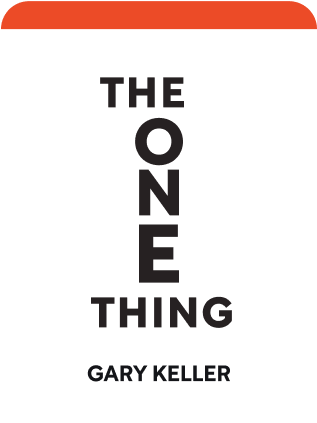

This article is an excerpt from the Shortform book guide to "The One Thing" by Gary Keller. Shortform has the world's best summaries and analyses of books you should be reading.
Like this article? Sign up for a free trial here .
Do you know how to become an expert at something? What commitment is needed?
To become an expert, you must invest a great amount of time. That time must be focused on the right thing for it to be productive. You also need to have a purposeful approach, seeking new and better ways to do what you’re doing.
Keep reading to learn how to become an expert.
Become an Expert in 2 Steps
Achieving exceptional results from time blocking requires exceptional effort in three areas: 1) committing yourself to mastery, 2) determining the best way to do something, and 3) holding yourself accountable.
1) Commit Yourself to Mastery
Mastery—becoming an expert—is a process rather than an end result. It’s based on the desire to become the best you can be at doing your most important thing and an understanding that there’s always more to learn. You’ve mastered tasks accomplished in the past, but you’re an apprentice when it comes to future tasks. There’s always a new level of expertise to reach.
Mastery of the right thing topples your first domino and “makes everything else easier or no longer necessary.”
Besides requiring a mindset of continual learning, becoming an expert requires a significant investment of time. The time you spend is ultimately more important than talent.
Psychologist K. Anders Ericsson debunked the idea that top performers excel because they’re gifted. He found that the key to reaching elite levels was intense and “deliberate” practice over many years—for instance, top violinists accumulated over 10,000 hours of practice by age 20. If you put in 250 work days a year on your One Thing, you need to average four hours a day to amass 10,000 hours in ten years. (Shortform note: Read more about why high-quality practice matters more than talent in our summary of Ericsson’s book Peak.)
When you approach your focused time blocks with a “mastery mentality,” each level you achieve prepares you for the next—your growing knowledge, skills, and competence give you momentum for further successes. Becoming an expert is a process that “keeps on giving.”
2) Determine the Best Way
When you set out to do something, you have a choice of either doing it the best you can or doing it the best it can possibly be done.
Doing something the best you can is an entrepreneurial approach. With an entrepreneurial mindset, you see what needs to be done and jump into it by applying your energy and ability. However, everyone has an ability limit and will top out. For instance, some people hit their home-repair skill limit as soon as they pick up a hammer, while others become an expert at using it. If your goal is to just do your best, then you’re done once you reach your talent limit. Your best effort won’t bring you exceptional success—that requires continually improving how you do your One Thing.
Instead of an entrepreneurial approach, you must take a purposeful approach. This means not stopping when you reach your knowledge and talent limit, but seeking new and better ways to do what you’re doing.
Here’s an example comparing the two approaches:
- An entrepreneurial approach to cutting firewood would be to pick up an ax and head for the woodpile.
- A purposeful approach would be to look for the best or most efficient way to cut wood: a chainsaw or a log splitter.
A purposeful approach applies the rule that getting a different or better result requires doing something different. Applying a purposeful approach during your time block unlocks your potential, putting you on the road to becoming an expert.

———End of Preview———
Like what you just read? Read the rest of the world's best book summary and analysis of Gary Keller's "The One Thing" at Shortform .
Here's what you'll find in our full The One Thing summary :
- Why focusing daily on one thing, rather than many, is the key to success
- How success is like dominos
- The six common myths about success






